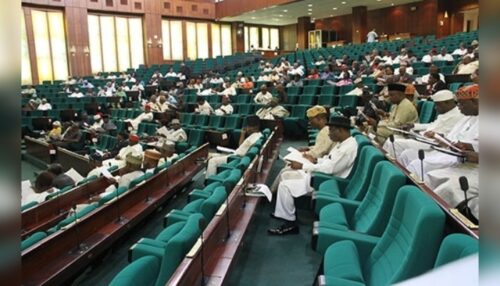There are strong indications that the National Assembly may significantly increase the N49.7 trillion budget proposal put forward by President Bola Tinubu for the 2025 fiscal year. This potential adjustment comes in response to persistent demands from Ministries, Departments, and Agencies (MDAs), which argue that their initial allocations are insufficient to fulfill their mandates.
Experts have expressed concerns that such an increase could exacerbate inflationary pressures and further expose inefficiencies in Nigeria’s budgetary planning process. As budget defense sessions continue in the National Assembly, it has become evident that numerous MDAs are dissatisfied with their allocated funds and are advocating for substantial upward revisions. Many have also criticized the long-standing envelope system, which caps spending within a predetermined limit.
The push for increased funding is driven by rising operational costs and fluctuations in the naira’s exchange rate. For instance, Dele Alake, the Minister of Solid Minerals Development, highlighted that his ministry’s allocation of N9 billion is grossly inadequate. During his budget defense, Alake revealed that his ministry had initially requested N539.7 billion, but only a fraction of this amount was approved.
In response to these concerns, the Senate’s Joint Committee on Solid Minerals summoned key officials, including Wale Edun, the Minister of Finance, Atiku Bagudu, the Minister of Budget and Economic Planning, and Tanimu Yakubu, the Director-General of the Budget Office, to justify the limited allocation.
Similarly, Mahmood Yakubu, Chairman of the Independent National Electoral Commission (INEC), rejected the proposed N40 billion budget for the commission, asserting that it covers less than one-third of the agency’s projected N126 billion expenses. Eventually, the committee approved the full requested amount.
Other MDAs, such as the Ministry of Regional Development, have also sought additional funding. Minister Abubakar Momoh called for legislative support to raise the N28.9 billion budget ceiling, stating that the current allocation would hinder the ministry’s objectives.
The Ministry of Livestock Development faced similar challenges, with the Joint Committee urging Minister Idi Maiha to revise the ministry’s financial requirements and present a supplementary budget. Lawmakers have pledged their commitment to ensuring adequate funding to support the newly created ministry.
Even ministries that received the largest allocations, such as Defense, Education, and Health, have expressed dissatisfaction, arguing that the funds allocated fall short of what is required to meet their operational needs.
With mounting requests for budget increases, many lawmakers predict that the National Assembly could approve a significantly higher budget than initially proposed. Senator Osita Izunaso, Chairman of the Senate Committee on Capital Markets and Institutions, criticized the envelope system and called for better coordination in budget planning. He pointed out that repeated demands for additional funds indicate a lack of confidence in the current budgeting approach.
Izunaso emphasized the need for improved budget preparation, urging the executive arm to work closely with MDAs to determine their financial needs before presenting proposals. He suggested that the budget is unlikely to remain at N49.7 trillion, as pressing demands cannot simply be ignored.
Economic analysts have cautioned that any budget expansion should be approached with caution to avoid increasing Nigeria’s debt burden. Seyi Adenuga, a policy analyst at BudgIT, stressed that an enlarged budget, if not carefully managed, could worsen fiscal instability and deter private investment.

Muda Yusuf, an economist and former Director-General of the Lagos Chamber of Commerce and Industry, echoed concerns about the recurring budget shortfalls faced by MDAs. He pointed out that many agencies receive only a small fraction of their allocated funds for capital projects, leading to frustration and inefficiencies.
Yusuf warned that unchecked budget expansion could result in fiscal deficits and increased borrowing, which would ultimately threaten macroeconomic stability. He proposed alternative funding solutions such as public-private partnerships and asset monetization to generate additional revenue without exacerbating debt levels.
In light of these concerns, lawmakers and economic experts are urging a more strategic approach to budgeting—one that prioritizes critical sectors such as infrastructure, healthcare, and education while ensuring financial sustainability.
Senator Ede Dafinone, a chartered accountant, suggested that the budgeting process should be restructured to allow for annual reviews and adjustments to ensure allocations align with current economic realities. Similarly, Senator Adams Oshiomole maintained that while the envelope system has merits, it requires enhancements to function effectively within Nigeria’s economic context.
Ultimately, the ongoing budget defense process highlights the need for a more transparent and efficient allocation system to prevent last-minute adjustments and ensure that government spending aligns with national development priorities.



